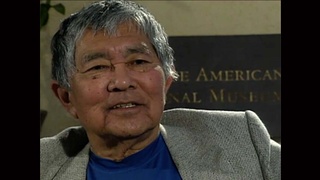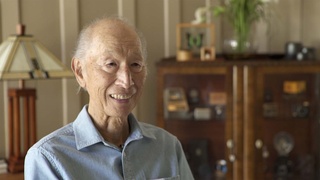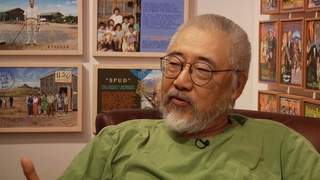Interviews
Embarrassed to talk about camp
We came out of camp and I was living in Long Beach, and I saw one of the girls that I used to play in camp with – her name was Akiko Shigetomi – and I remember seeing her. We met and we were very embarrassed to talk and we never mentioned camp. We never mentioned camp and…but it was so subconscious, when I think of it now, that it was like it was a bad dream or that there was some shame involved with it. So you just don’t refer to it. And it wasn’t. And then, of course, I realized that it was totally suppressed during my teenage years and it wasn’t really until we wrote the book that all of this came out and all that, you know, traumatic, emotional…what had happened emotionally was so traumatic.
And I know it wasn’t just for myself. And that’s why when…it was like seeing…I try to give it a metaphor. Like seeing somebody that you’ve experienced something with – like maybe you were raped or something – and then you see each other and you know you both went through that but you never mention it. It’s like, “Hey, unsaid. We’re not going to talk about that. We’re not going to even recognize that that happened to us.”
Later on, as I got older, it would be, you know, we could mention it and think, “Oh yeah, remember in camp…” but I remember just coming out because we were too young and it was the wounds were too raw. We didn’t know what happened to us. We didn’t know that we were…all we knew was that we were going to be hated when we got out of that camp.
Date: December 27, 2005
Location: California, US
Interviewer: John Esaki
Contributed by: Watase Media Arts Center, Japanese American National Museum








